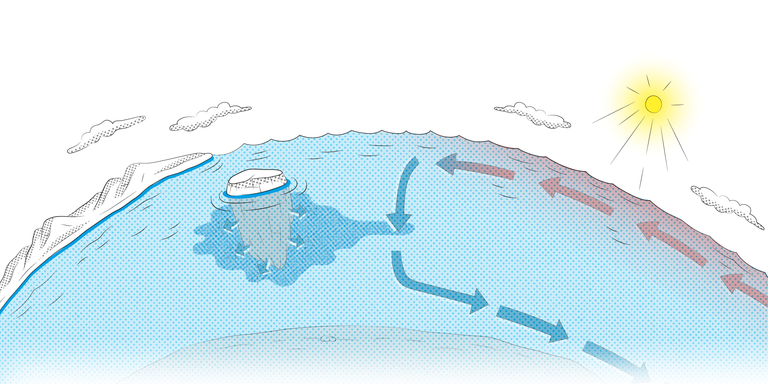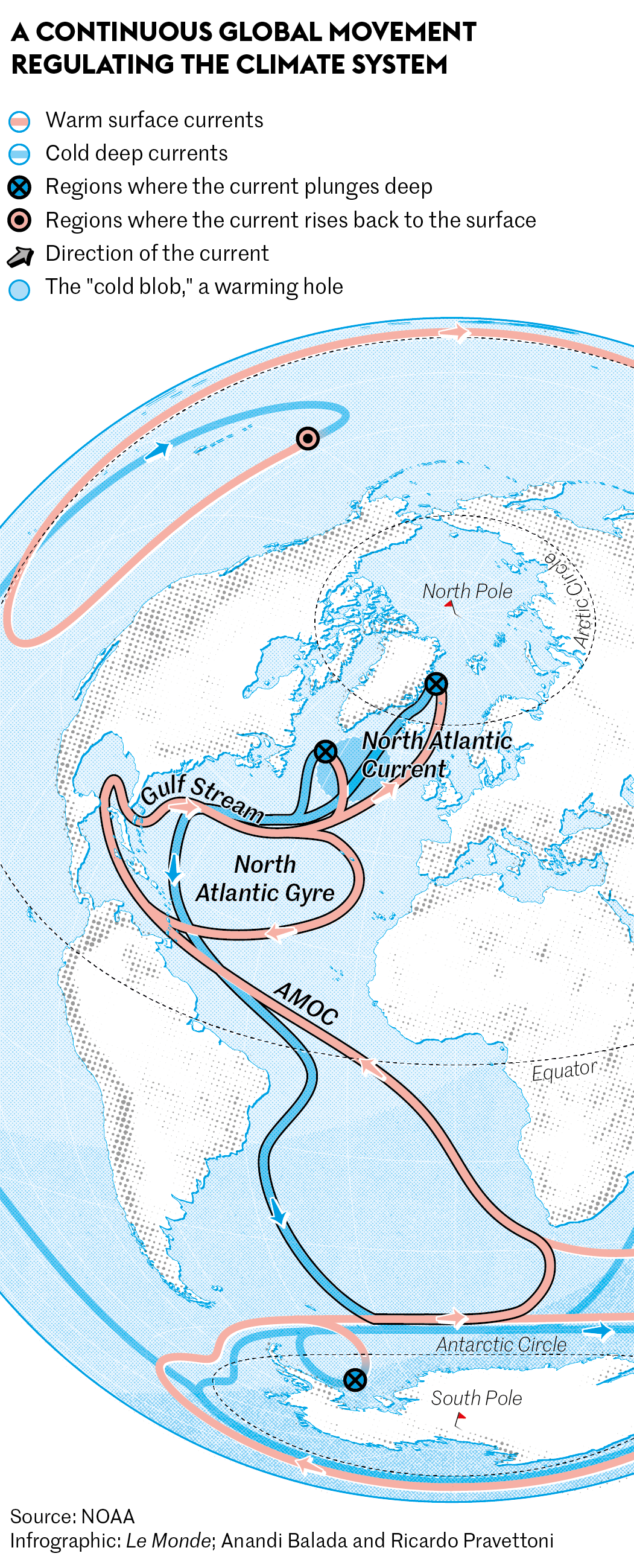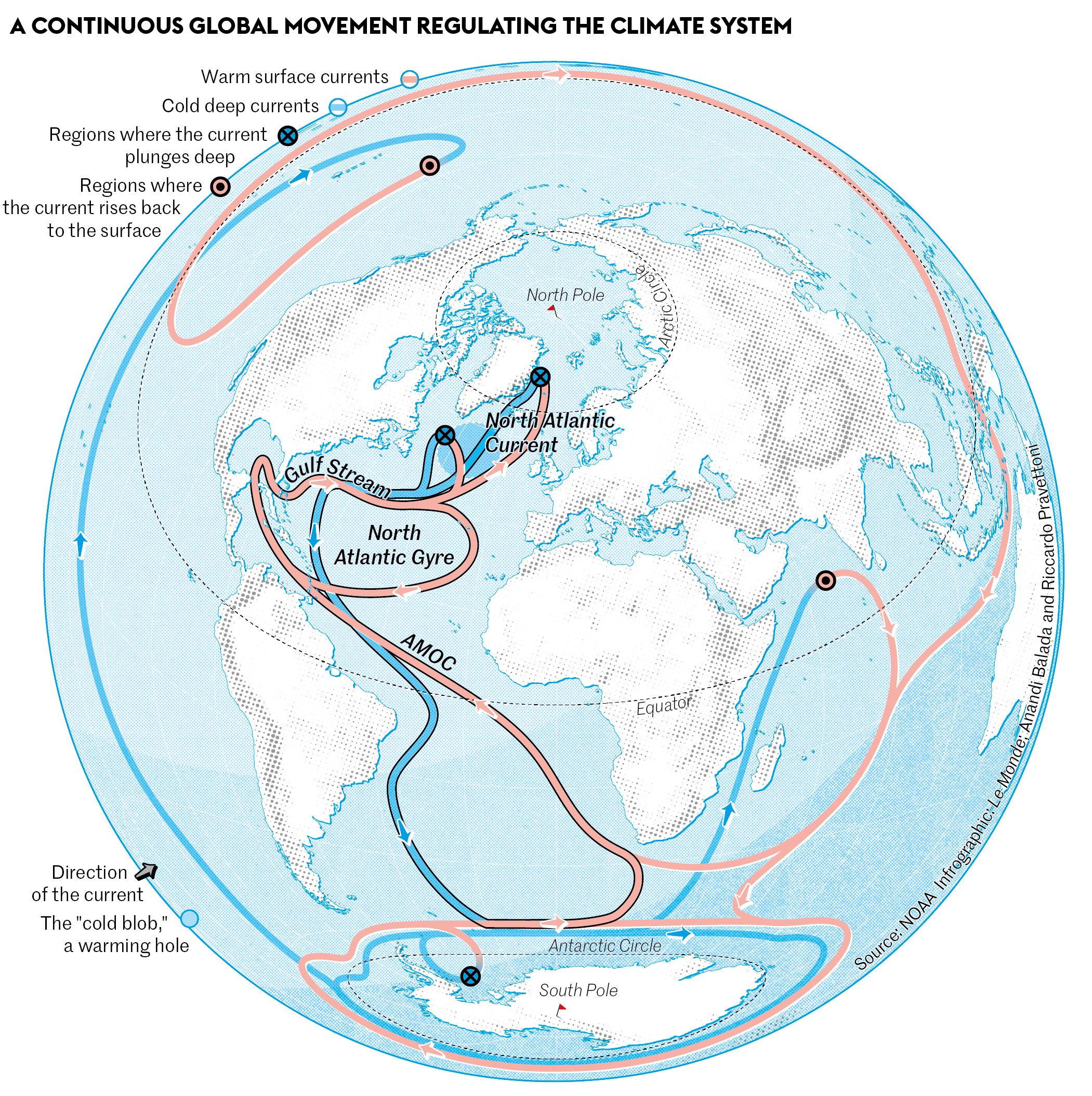


The Gulf Stream, a famous current held up as a symbol Earth's fragility
Investigation'The Earth's Pulses' (1/6). The Gulf Stream is often thought of as the conveyor of heat from the Gulf of Mexico to Western Europe. In reality, a different current does that job: the Atlantic Meridional Overturning Circulation, which, unlike the Gulf Stream, could be threatened by global warming.
In a report submitted to the Pentagon in October 2003, analysts Peter Schwartz and Doug Randall sought to pinpoint the possible consequences of an abrupt climatic event, one of the nasty surprises that global warming could hold in store for us. They warned that theirs was not a forecast, but rather a thought experiment. They described an "unthinkable" catastrophe, but one worth analyzing: The collapse, between 2010 and 2020, of ocean circulation in the North Atlantic. In other words, the end of the Gulf Stream, the great ocean current that has filled popular stories and geography textbooks for over a century. Schwartz and Randall imagined that the ocean current – which acts like a hidden artery carrying beneficial warmth from the New to the Old World – could stop flowing. The Gulf Stream, we learned in school, is the reason why, along the same parallel, there are vineyards in Bordeaux and four months of freezing winter in Montreal.
Schwartz and Randall asked the question that many schoolchildren once asked themselves in geography class: What would happen if, all of a sudden, this great current stopped? "The immediate climatic effect [would be] cooler temperatures in Europe and throughout much of the Northern Hemisphere and a dramatic drop in rainfall in many key agricultural and populated areas," wrote the two Pentagon analysts.
According to their scenario, the southern hemisphere would be steaming, while northern Europe would dry up and shiver, pushing Scandinavians to migrate south. Internal conflicts within the European Union would soon arise over access to fresh water. The EU would be so weakened that it would open its doors to Russia in 2018. By 2025, it would nearly collapse, with "increasing migration to Mediterranean countries such as Algeria, Morocco, Egypt and Israel."
In a reversal of migration flows, desperate Europeans would cross the Mediterranean to find refuge in North Africa and the Levant. Such a scenario will surely ring a bell with disaster movie fans. In one of the final scenes of Roland Emmerich's The Day After Tomorrow (2004), the first blockbuster to deal with climate change, hordes of US citizens cross the Mexican border, fleeing the endless blizzards, storms and calamities of the little ice age that has settled over North America because of the collapse of the Atlantic current.
Prayers
Beware the Gulf Stream's disappearance! It is much more than a marine current: in our collective imagination, it is also the symbol of the vital and beneficial link between two continents. The Gulf Stream is Europe thanking America. In a fine essay on the subject, titled Portrait du Gulf Stream (Portrait of the Gulf Stream), French writer Erik Orsenna recounted: "In my family, Catholic by tradition, it was understood that some of our prayers should express gratitude to God (for all His works) and, a close second, gratitude to the Gulf Stream. Every time we emerged shaking and shivering from our icy Breton swims, a grandmother or an aunt would be there to exclaim: 'Now don't forget to thank the Gulf Stream! If not for the Gulf Stream, our ocean would be cold.'"
You have 83.48% of this article left to read. The rest is for subscribers only.


